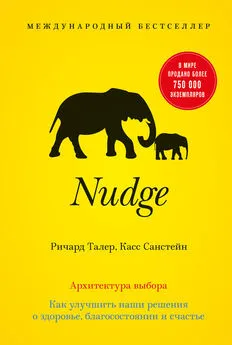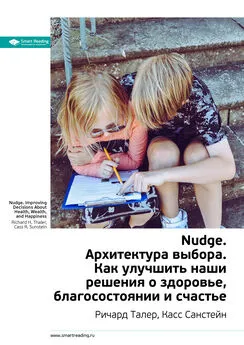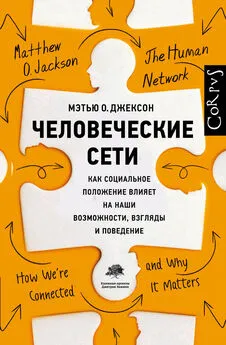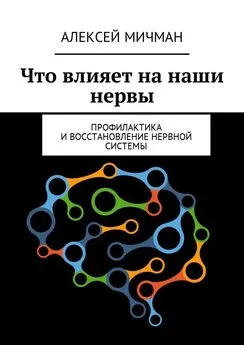Крис Пэйли - Не бери в голову. 100 фактов о том, как подсознание влияет на наши решения
- Название:Не бери в голову. 100 фактов о том, как подсознание влияет на наши решения
- Автор:
- Жанр:
- Издательство:Манн, Иванов и Фербер
- Год:2015
- Город:Москва
- ISBN:978-5-00057-623-6
- Рейтинг:
- Избранное:Добавить в избранное
-
Отзывы:
-
Ваша оценка:
Крис Пэйли - Не бери в голову. 100 фактов о том, как подсознание влияет на наши решения краткое содержание
На русском языке публикуется впервые.
Не бери в голову. 100 фактов о том, как подсознание влияет на наши решения - читать онлайн бесплатно полную версию (весь текст целиком)
Интервал:
Закладка:
118. D. C. Molden, C. M. Hui, A. A. Scholer, B. P. Meier, E. E. Noreen, P. R. Dagostino, and V. Martin. Motivational versus metabolic effects of carbohydrates on self-control. Psychological Science, 23(10):1137–1144, 2012.
119. N. Moray. Attention in dichotic listening: Affective cues and the influence of instructions. Quarterly Journal of Experimental Psychology, 11(1):56–60, 1959.
120. E. Morsella. The function of phenomenal states: Supramodular interaction theory. Psychological Review, 112(4):1000–1021, 2005.
121. E. Morsella and J. A. Bargh. Unconscious action tendencies: Sources of ‘un-integrated’ action. In Decety and Cacioppo, editors, Handbook of Social Neuroscience, 2011.
122. E. Morsella, S. C. Krieger, and Jj. A. Bargh. The primary function of consciousness: Why skeletal muscles are voluntary muscles. In E. Morsella, J. A. Bargh, and P. M. Gollwitzer, editors, Oxford Handbook of Human Action, pages 625–634, 2009.
123. M. Muraven and R. F. Baumeister. Self-regulation and depletion of limited resources: Does self-control resemble a muscle? Psychological Bulletin, 126(2):247–259, 2000.
124. M. Muraven, D. M. Tice, and R. F. Baumeister. Self-control as a limited resource: Regulatory depletion patterns. Journal of Personality and Social Psychology, 74:774–789, 1998.
125. R. E. Nisbett and T. D. Wilson. Telling more than we can know: Verbal reports on mental processes. Psychological Review, 84(3):231–259, 1977.
126. B. A. Nosek, A. G. Greenwald, and M. R. Banaji. The implicit association test at age 7: A methodological and conceptual review. In J. A. Bargh, editor, Social Psychology and the Unconscious: The Automaticity of Higher Mental Processes, pages 265–292, 2007.
127. M. Oaten and K. Cheng. Longitudinal gains in self-regulation from regular physical exercise. British Journal of Health Psychology, 11(4):717–733, 2006.
128. B. K. Payne. Prejudice and perception: The role of automatic and controlled processes in misperceiving a weapon. Journal of Personality and Social Psychology, 81(2):181, 2001.
129. R. M. Perloff. The Dynamics of Persuasion. Lawrence Erlbaum Associates, 2003.
130. J. Perner, U. Frith, A. M. Leslie, and S. R. Leekam. Exploration of the autistic child’s theory of mind: Knowledge, belief, and communication. Child Development, pages 689–700, 1989.
131. M. Pessiglione, L. Schmidt, B. Draganski, R. Kalisch, H. Lau, R. J. Dolan, and C. D. Frith. How the brain translates money into force: A neuroimaging study of subliminal motivation. Science, 316(5826):904–906, 2007.
132. W. Phillips, S. Baron-Cohen, and M. Rutter. Understanding intention in normal development and in autism. British Journal of Developmental Psychology, 16(3):337–348, 1998.
133. D. A. Pizarro, C. Laney, E. K. Morris, and E. F. Loftus. Ripple effects in memory: Judgments of moral blame can distort memory for events. Memory & Cognition, 34(3):550–555, 2006.
134. A. R. Pratkanis. The Science of Social Influence. Psychology Press, 2007.
135. E. Pronin, C. Y. Olivola, and K. A. Kennedy. Doing unto future selves as you would do unto others: Psychological distance and decision making. Personality and Social Psychology Bulletin, 34(2):224–236, 2008.
136. D. Read and B. Van Leeuwen. Predicting hunger: The effects of appetite and delay on choice. Organizational Behavior and Human Decision Processes, 76(2):189–205, 1998.
137. A. S. Reber. Implicit learning of artificial grammars. Journal of Verbal Learning and Verbal Behavior, 6(6):855–863, 1967.
138. A. S. Reber. Implicit learning and tacit knowledge. Journal of Experimental Psychology: General, 118(3):219–235, 1989.
139. P. Rozin, J. Haidt, and K. Fincher. From oral to moral. Science, 323:1179–1180, 2009.
140. K. Sekiyama and Y. Tohkura. McGurk effect in non-English listeners: Few visual effects for Japanese subjects hearing Japanese syllables of high auditory intelligibility. The Journal of the Acoustical Society of America, 90:1797–1805, 1991.
141. L. Shams, Y. Kamitani, and S. Shimojo. What you see is what you hear. Nature, 408:788, 2000.
142. L. Shams, Y. Kamitani, and S. Shimojo. Visual illusion induced by sound. Cognitive Brain Research, 14(1):147–152, 2002.
143. Y. Shoda, W. Mischel, and P. K. Peake. Predicting adolescent cognitive and self-regulatory competencies from preschool delay of gratification: Identifying diagnostic conditions. Developmental Psychology, 26(6):978–986, 1990.
144. T. Singer, B. Seymour, J. P. O’doherty, K. E. Stephan, R. J. Dolan, and C. D. Frith. Empathic neural responses are modulated by the perceived fairness of others. Nature, 439:466–469, 2006.
145. A. Slachevsky, B. Pillon, P. Fourneret, P. Pradat-Diehl, M. Jeannerod, and B. Dubois. Preserved adjustment but impaired awareness in a sensory-motor conflict following pre-frontal lesions. Journal of Cognitive Neuroscience, 13(3):332–340, 2001.
146. D. A. Small, G. Loewenstein, and P. Slovic. Sympathy and callousness: The impact of deliberative thought on donations to identifiable and statistical victims. Organizational Behavior and Human Decision Processes, 102(2):143–153, 2007.
147. A. P. Smith, R. Clark, and J. Gallagher. Breakfast cereal and caffeinated coffee: Effects on working memory, attention, mood, and cardiovascular function. Physiology & Behavior, 67(1):9–17, 1999.
148. Victoria Southgate. Early manifestations of mindreading. In S. Baron-Cohen, H. Tager-Flusberg, and M. V. Lombardo, editors, Understanding Other Minds, pages 3–18. Oxford University Press, 2013.
149. S. Stepper and F. Strack. Proprioceptive determinants of emotional and nonemotional feelings. Journal of Personality and Social Psychology, 64:211–220, 1993.
150. T. F. Stillman, D. M. Tice, F. D. Fincham, and N. M. Lambert. The psychological presence of family improves self-control. Journal of Social and Clinical Psychology, 28(4):498–529, 2009.
151. J. P. Tangney, R. F. Baumeister, and A. L. Boone. High self-control predicts good adjustment, less pathology, better grades, and interpersonal success. Journal of Personality, 72(2):271–324, 2004.
152. A. Todorov, A. N. Mandisodza, A. Goren, and C. C. Hall. Inferences of competence from faces predict election out-comes. Science, 308(5728):1623–1626, 2005.
153. J. M. Twenge, R. F. Baumeister, C. Nathan Dewall, N. Ciarocco, and J. Michael Bartels. Social exclusion decreases prosocial behavior. Journal of Personality and Social Psychology, 92:56–66, 2007.
154. J. M. Twenge, R. F. Baumeister, D. M. Tice, and T. S. Stucke. If you can’t join them, beat them: Effects of social exclusion on aggressive behavior. Journal of Personality and Social Psychology, 81:1058–1069, 2001.
155. J. M. Twenge, L. Zhang, and C. Im. It’s beyond my control: A cross-temporal meta-analysis of increasing externality in locus of control, 1960–2002. Personality and Social Psychology Review, 8(3):308–319, 2004.
156. E. L. Uhlmann, D. A. Pizarro, D. Tannenbaum, and P. H. Ditto. The motivated use of moral principles. Judgment and Decision Making, 4(6):476–491, 2009.
157. R. B. Van Baaren, R. W. Holland, B. Steenaert, and A. Van Knippenberg. Mimicry for money: Behavioral consequences of imitation. Journal of Experimental Social Psychology, 39:393–398, 2003.
158. L. Van Boven, G. Loewenstein, and D. Dunning. The illusion of courage in social predictions: Underestimating the impact of fear of embarrassment on other people. Organizational Behavior and Human Decision Processes, 96(2):130–141, 2005.
159. L. Van Boven, G. Loewenstein, E. Welch, and D. Dunning. The illusion of courage in self-predictions: Mispredicting one’s own behavior in embarrassing situations. Journal of Behavioral Decision Making, 25(1):1–12, 2012.
160. M. Velmans and S. Schneider. The Blackwell Companion to Consciousness. Blackwell, 2007.
161. M. Virkunnen, J. De Jong, J. Bartko and F. K. Goodwin and M. Linnoila. Relationship of psychobiological variables to recidivism in violent offenders and impulsive fire setters: a follow-up study. Archives of General Psychiatry, 46(7):600, 1989.
162. K. D. Vohs, R. F. Baumeister, B. J. Schmeichel, J. M. Twenge, N. M. Nelson, and D. M. Tice. Making choices impairs subsequent self-control: A limited-resource account of decision-making, self-regulation, and active initiative. Journal of Personality and Social Psychology, 94(5):883–898, 2008.
163. K. D. Vohs and J. W. Schooler. The value of believing in free will: Encouraging a belief in determinism increases cheating. Psychological Science, 19(1):49–54, 2008.
164. K. A. Wade, M. Garry, J. D. Read, and D. S. Lindsay. A picture is worth a thousand lies: Using false photographs to create false childhood memories. Psychonomic Bulletin & Review, 9(3):597–603, 2002.
165. D. M. Wegner. The Illusion of Conscious Will. MIT Press, 2002.
166. L. Weiskrantz. Blindsight. Oxford University Press, 2009.
167. G. L. Wells and R. E. Petty. The effects of overhead movements on persuasion: Compatibility and incompatibility of responses. Basic and Applied Social Psychology, 1(3):219–230, 1980.
168. R. West. Glucose for smoking cessation. CNS Drugs, 15(4):261–265, 2001.
169. J. Whitham and A. Mathis. Effects of hunger and predation risk on foraging behavior of graybelly salamanders, Eurycea Multiplicata. Journal of Chemical Ecology, 26(7):1659–1665, 2000.
170. L. E. Williams and J. A. Bargh. Experiencing physical warmth promotes interpersonal warmth. Science, 322:606–607, 2008.
171. D. Williams. Theory of own mind in autism: Evidence of a specific deficit in self-awareness? Autism, 14(5):474–494, 2010.
172. T. D. Wilson, D. J. Lisle, J. W. Schooler, S. D. Hodges, K. J. Klaaren, and S. J. Lafleur. Introspecting about reasons can reduce post-choice satisfaction. Personality and Social Psychology Bulletin, 19:331–339, 1993.
173. J. C. Wu, J. C. Gillin, M. S. Buchsbaum, and T. Hershey. The effect of sleep deprivation on cerebral glucose metabolic rate in normal humans assessed with positron emission tomography. Sleep: Journal of Sleep Research & Sleep Medicine, 14(2):155–162, 1991.
174. R. B. Zajonc. Attitudinal effects of mere exposure. Journal of Personality and Social Psychology, 9(2):1–27, 1968.
175. R. Ziegler and M. Diehl. Is politician A or politician B more persuasive? European Journal of Social Psychology, 33:623–627, 2003.
176. C. Zhong and G. J. Leonardelli. Cold and lonely: Does social exclusion literally feel cold? Psychological Science, 19:838–842, 2008.
177. C. Zhong and K. Liljenquist. Washing away your sins: Threatened morality and physical cleansing. Science, 313:1451–1452, 2006.
Сноски
1
Некоторые контрольные условия могут показаться слегка надуманными. Это еще один признак того, что самонаблюдения недостаточно для того, чтобы понимать, на что влияют наши мысли и поступки. Мы видим, как чашка горячего кофе может менять восприятие людей. Язык вызывает эффект Макгурка. Люди способны влюбляться, даже проходя по страшному мосту. Если судить о собственном сознании по внешним реакциям, можно ли утверждать, что одежда способна менять нашу личность?
Прочитав эту книгу, вы больше не сможете участвовать в опытах и экспериментах: ведь теперь вы не сомневаетесь, что, если вы случайно опрокинете стаканчик с карандашами, кто-то рядом обязательно посчитает, сколько карандашей вы поднимете. Есть подозрение, что во многих экспериментах испытуемые – студенты младших курсов психологических факультетов, которых убеждают (или принуждают) становиться добровольцами в обмен на зачет по профильному предмету. Такие испытуемые разгадывают трюки, которые с ними проделывают социальные психологи. Иногда они вовсе не заинтересованы в определенной области исследования, и можно только удивляться, почему они проводят годы, участвуя в опытах.
Читать дальшеИнтервал:
Закладка:




![Мэтью Джексон - Человеческие сети [Как социальное положение влияет на наши возможности, взгляды и поведение]](/books/1061636/metyu-dzhekson-chelovecheskie-seti-kak-socialnoe-po.webp)





